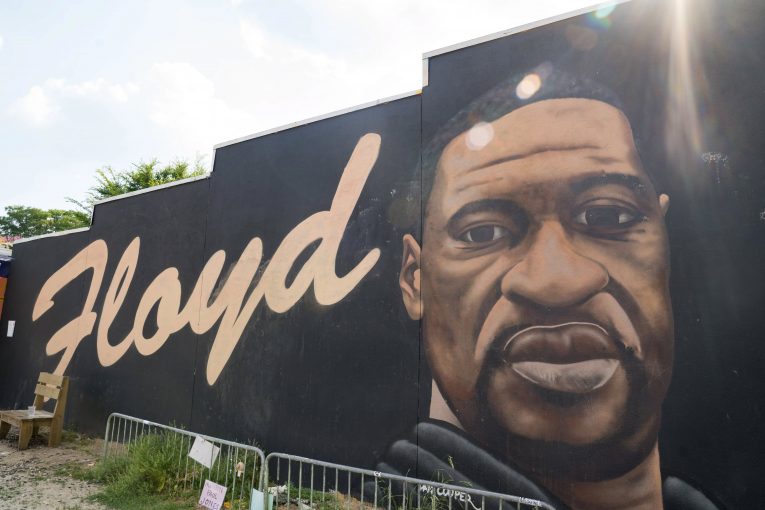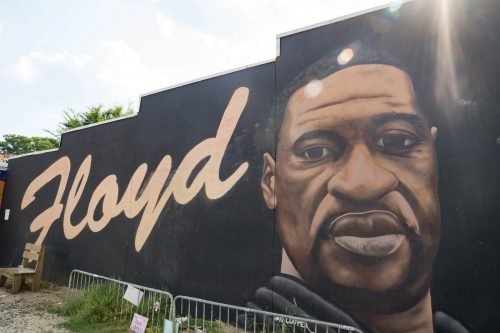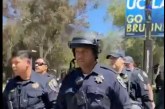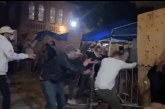

Megan Varner/Getty Images
By Audrey Sawyer
MINNEAPOLIS, MN – Thanksgiving week wasn’t a good one all around for former Minneapolis police officer Derek Chauvin, convicted for the murder of George Floyd, a Black man, whose police killing reignited the Black Lives Matter movement and sparked worldwide protests in the summer of 2020.
Friday, in a federal prison in Arizona, Chauvin was stabbed and seriously injured. As of Sunday, he is in stable condition, according to news reports.
And, last Monday, the U.S. Supreme Court refused to review his conviction.
Protesters in cities nationwide and elsewhere took to the streets following Floyd’s death, and demonstrations continued into Chauvin’s state murder trial.
Video footage had widely spread on social media showing Floyd pleading he could not breathe as the then-Minneapolis police officer Chavin kneeled on Floyd’s neck for more than 9 minutes.
Around 11 months after Floyd’s killing, a jury convicted Chauvin on charges of second-degree murder, third-degree murder and second-degree manslaughter.
Following the conviction, Chauvin pled guilty to depriving both George Floyd and a then 14-year-old boy (referenced by Fox of where he held the boy down by the throat before striking multiple times with his flashlight) of their civil rights on separate occasions. He was sentenced to 252 months in prison for the federal case.
Chauvin alleged, in his appeal, new evidence reveals he is not the person at fault for Floyd’s death. Chauvin points out that he “never would have pled guilty to the charge if he had known of the theories of a Kansas pathologist” (whom he has been corresponding with this February).
Chauvin claims, according to pathologist Dr. William Schaetzel (from Topeka), Floyd did not die of asphyxia from Chauvin’s actions, but from complications of a rare tumor that can cause a fatal surge of adrenaline. While Schaetzel did not review the body of Floyd, the theory results from viewing the autopsy reports, the Associated Press wrote.
Chauvin asked the justices to hear his case after it was denied by Minnesota’s top courts. His attorney, William Mohrman, told The Associated Press that they were “obviously disappointed” in the Minnesota Supreme Court’s decision.
Chauvin, aged 47, has been appealing his conviction on various grounds while serving a more than 22-year prison sentence. CNN references that Mohrman cited concerns with the pretrial publicity that came with the case, along with the potential for violence if Chauvin would have been acquitted.
However, justices have refused to look into Chauvin’s appeal, allowing the conviction to stand.
In addition to alleged prejudicial pretrial publicity, Chauvin has been seeking the Supreme Court review to see whether or not he was improperly denied a venue change, and to see whether or not his trial judge was obligated to hold a hearing to consider alleged juror misconduct discovered after a delivered verdict.
According to CNN, The State Court of Appeals received an 82-page filing, with claims his conviction should be overturned or the court should order a new trial in a different venue.
The appeal alleges the court proceedings were “so pervaded by error, misconduct and prejudice that they were structurally defective.” The filing also argues Chauvin was not given his constitutional right to due process and a fair trial.
Chauvin claims there was concern over riots in Minneapolis while the city was preparing for the verdict and jurors had a “personal vested interest” in finding him guilty to avoid threats being made against their communities and families, according to MSN, noting Chauvin’s counsel previously argued the trial should have been held in a court outside Minneapolis,
Chauvin’s attorney said, “Mr. Chauvin’s case shows the profound difficulties that trial courts have to ensure a criminal defendant’s right to an impartial jury consistently when extreme cases arise.”





Karma comes for racist murderer Derek Chauvin.
What’s ironic is that he wanted to go to federal prison believing he would be safer.